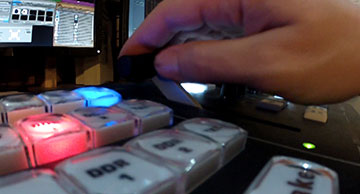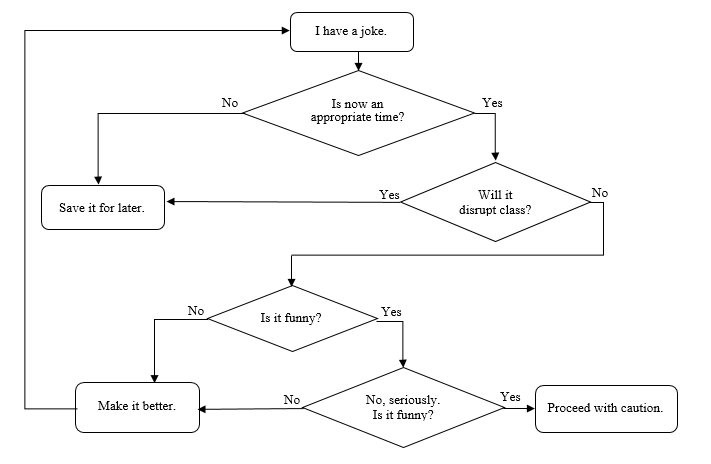
Sunday Dec. 7th 2025
Tweets by @JDHSVideo


Hello and welcome to the JDHS Video Production course for the spring semester of 2020. The primary goal of this course is to teach you the basic skills of journalistic & artistic video production from both a content and a technical angle. The “deliverable” (produced product) of the classes will be a live television news program that is broadcast on the Juneau School District cable TV channel 6 on GCI cable throughout Juneau, worldwide on the internet, and shown on the large plasma TV in the JDHS commons.
As we progress through the production process, you will gain the following skills:
Other areas that will be developed alongside are time management, leadership, teamwork, and overall communication skills. These are the parts that are critical to the overall success of the course; and that have the most impact in any field.
The course is generally speaking a “fun” class. There will be very little traditional “homework”; however the class is assignment based, and it will be up to you to make sure the work gets done and submitted on time. In the broadcasting world the clock is relentless, and that will also be the case in this class. You will have a lot of freedom as students, which we find can make for a very pleasant environment for the group; however we do expect you to maintain a professional attitude at all times. We get to play with a lot of expensive and pretty cool toys, but we have to respect them and treat them with care (we have a limited budget, and some of the equipment is on loan). We will make a lot of resources available to you, including time; and you may use those resources as you wish to your benefit in scope of this course. In return we expect that you are responsible in your use of the resources, and that they and your assignments are returned on time and to the best of your ability.
Remember that the course, the tools, and we, are all here for your benefit as students. Now, let’s make some television!
Students will be working in groups to produce a weekly live 10-minute TV show. Each group of students will be responsible for producing an entire show every couple of weeks. They will work independently along side each other on various areas of production as we prepare for each show. Students from the group will then present their own show as anchors and reporters for various segments, working together with students from other groups to produce the show as a larger production team. Everyone will be expected to appear on camera regularly as part of this course.
At any given time, teams will be in various stages of producing content for upcoming shows. It is up to you to make sure that your production and time responsibilities are met. All students not in the "production" group, are expected to be the “studio tech crew” to run the live show at 8:45am on show days. Crew call is at 8:20 for an 8:30 rehearsal. Tasks are as follows:
The entire class will meet daily at 8:00 for a brief “production meeting” to keep everyone aware of what the other groups are doing and to allow for collaboration of content. The production meeting on show days will last about 15 minutes as we will review the script for the show.
The goal is for a school morning show with some "live" sections of presented news (the sort of thing you'd find in the bulletin) and a variety pre-produced stories or features mixed in along with live weather and sports segments and occasionally also live reports from the field. Normally groups of producers will have a couple of weeks to prepare for a show. The show is recorded and broadcast live to the plasma and the internet, it then re-airs a few minutes later at the start of the regular school day and is repeated a few times throughout the day.
The pace will be pretty fast and can get a little chaotic at times. But remember that while keeping professional, don't stress too much and don't take things too personally if things heat up a little during production; it's all part of the process. Normally things should be pretty relaxed and easy going, especially if things aren’t left to the last minute.
Video production is a "stacked" class and consists of students of varying levels of experience. While many students have no experience with TV production at the start of the course, many are returning students who have a few semesters or years' experience in the class. The "Video Production 2" and higher students will be expected to produce a higher quality product and assume leadership roles in the class. Students working in a team are expected to automatically help less experienced students when possible, as this will reinforce everyone's learning. While "JDTV News" remains the production priority of the class – and will be mostly in the hands of the more experienced students until the newer students get up to speed -, the more experienced students can expect to be assigned more in depth video projects both within and beyond the production of "JDTV News".
While we provide all of the technical equipment and resources required to produce the show; students are also encouraged to make use of their own technology to learn it better.
We strongly recommend using the school's video editing computers whenever possible as they are integrated directly into the production system and have ample well backed up storage space.
Note that we cannot be responsible for the safety of, or supporting any personal technology. Any personal gear that you bring, you do so at your own risk. And while we will try and help you with any technical issues; we can't be tech support for every type of phone and laptop on the market. Because of this, you are recommended to allow extra time in case of trouble. We've seen our fair share of personal computers crashing the day before a show with a student's entire story on it with no backup elsewhere. Unfortunately that tends to result in a missed assignment.
Blaming personal technology issues is also the modern version of "my dog ate my homework", we may or may not believe you.
The content groups will be graded based on their deliverables. Each news cycle will have deadlines for key elements (such as the treatment, script, package, and transcript) by which time deliverables are expected.
The students on their tech crew days will be graded mostly on participation. The division into small groups allows us to keep close track of who is making a genuine effort to learn, and who isn’t. A lot of the tech group’s lesson time will be spent doing various hands-on technical “workshops” to learn the gear. There may also be small quizzes along the way, but they shouldn’t be too painful.
Due to the nature of broadcasting, time management is a critical element to this course. When a show goes to air, the production cycle is over. NO late content submissions will be accepted. A news deadline is exactly that: a deadline. If the news is on at 6pm and the story isn't ready, then it doesn't air. Simple as that. Work that isn't submitted on time will be marked 0, and will not be redeemable later. In the real world, if you miss too many stories, you get fired; in this class, that will reflect on your grade.
Extra credit will be available for some tasks, both during and outside class time. It is intended to allow you to improve your grade, not to save it.
The class operates in a very relaxed manor; however you are expected to be professional and courteous at all times. While jokes are common and makes for a pleasant environment, appropriate use of wit is desired.

Class distractions and horseplay are not appropriate, and can be a safety risk during production. Any form of bullying, hazing, or picking on others; as well as generally derogatory or insulting remarks will not be tolerated and will be responded to swiftly in accordance with the JSD discipline policy.
Video production is about communication.
If you have a wish or a concern, let us know. If for some reason your story isn’t going to be ready on time, tell us early; you will likely be able to negotiate a new due date (assuming you can produce a good reason to justify it). If you want to try something new or different, let us know and we’ll be happy to help you. If you are confused about something, ask us or a classmate. If you see something dangerous to someone or equipment, speak up! Everything in the class is very flexible, as long as you make an effort to communicate about it.